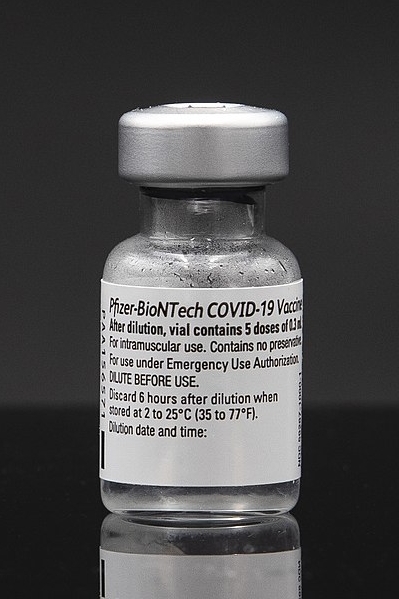Austria Preparing for COVID-19 Vaccine Booster Shots
New studies suggest that a COVID-19 vaccine booster shot will be necessary to help end the pandemic. Austrian Chancellor Sebastian Kurz and Health Minister Wolgang Mückstein publicly stated that Austria is taking the necessary steps to prepare for administering a third dose of the vaccine once it is recommended by the European Medicines Agency (EMA).
 "I appeal especially to the young people in the country: do not underestimate the virus, 7 out of 10 new infections affect you young people. Please get vaccinated." - Austrian Chancellor Sebastian Kurz / Picture: © Wikimedia Commons / Arne Müseler (www.arne-mueseler.com) / CC BY-SA 3.0 DE (https://creativecommons.org/licenses/by-sa/3.0/de/deed.en)
"I appeal especially to the young people in the country: do not underestimate the virus, 7 out of 10 new infections affect you young people. Please get vaccinated." - Austrian Chancellor Sebastian Kurz / Picture: © Wikimedia Commons / Arne Müseler (www.arne-mueseler.com) / CC BY-SA 3.0 DE (https://creativecommons.org/licenses/by-sa/3.0/de/deed.en)
Austrian Chancellor Sebastian Kurz and Health Minister Wolfgang Mückstein have indicated that Austria is preparing for a COVID-19 vaccine booster shot to be administered in the future.
According to scientific studies, a booster vaccination is needed to combat the coronavirus, and new findings are expected soon.
In a joint statement with Health Minister Mückstein, Chancellor Kurz said, “The top priority is to protect the elderly and vulnerable groups. We, therefore, expect to receive rapid information from the EMA (European Medicines Agency) on the need for a third vaccination against the coronavirus. In any case, we are prepared and have agreed with the vaccination coordinators of the federal states that we can start with the third vaccination immediately after a possible recommendation.”
Kurz also stated that he would ask EU Commission President Ursula von der Leyen to prioritize this issue at the European level. In addition, he said that Austria is exchanging experiences with countries, such as Israel and Germany, where the third vaccination is already underway or being planned.
Based on current data, Health Minister Mückstein assumes that a booster vaccination will be necessary after 9 months at the earliest. The National Vaccination Panel is continuously monitoring developments, he said.
“At the moment, however, it is particularly important that as many people as possible complete their vaccination process–this is the only way to provide them with the best possible protection against the delta variant. In parallel, we are in any case prepared for the third vaccination,” explained Mückstein.
He also clarified that, as with the first round of vaccinations, Austria will start by administering the booster in nursing homes and risk groups as soon as the experts recommend it and it is approved at the EU level.
Increase vaccination coverage
According to new data from the Corona Commission, the risk of infection in Austria remains low. Seventy percent of new infections occur in those under 35 and less than five percent of those over 65. Sufficient vaccination coverage of the young and vaccination protection of the older and vulnerable groups is now the most critical factor in the fight against the pandemic.
“The vaccine works and protects against the virus and variants. It is up to each individual to take up the offer and get vaccinated. I especially ask the young people in the country: go and get your vaccination. The first half of summer is over, and we can enjoy freedoms and normality again over wide areas, except for a few restrictions. If we want to continue this in the fall and winter, I appeal especially to the young people in the country: do not underestimate the virus, 7 out of 10 new infections affect you young people. Please get vaccinated,” Kurz stressed.
Mückstein echoed the Chancellor’s urgent plea, “Our ultimate goal must be to continue to increase the vaccination rate. So I renew my urgent appeal: please get vaccinated and complete your immunization coverage. The COVID-19 vaccine is not only our only way out of the pandemic, it also provides more than 90 percent protection against infection, including Long COVID. This disease is not to be underestimated; it will remain a great burden on our health care system. Ten to 14 percent of those infected still suffer from the sometimes life-changing consequences of the coronavirus months later. Women and younger people are overwhelmingly affected. Don't take any risks, get vaccinated.”



